The Day I Became Akiiki: What Uganda Taught Me About Resilience
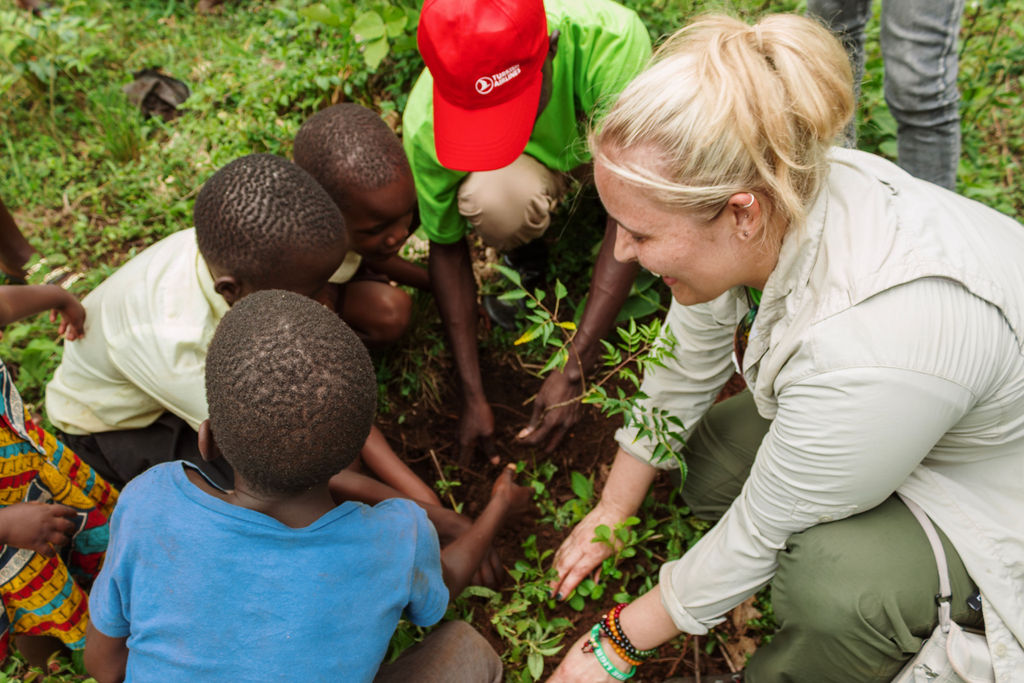
Why I wrote a book about a place I’d never been before
When the plane touched down in Uganda, my daughter Lena and I had our carry-on bags, our cameras, and a plan to “help.” We were Americans with good intentions, heading to support an agricultural nonprofit I’d recently received the title of Executive Director for.
What we didn’t have was any understanding of what was about to happen to us.
Uganda didn’t need us to save it. Uganda saved us instead.
The weight of proximity
Standing on Ugandan soil, I could feel the weight of proximity. Just across the border, families were still fleeing the violence we’d read about in headlines back home. The Democratic Republic of Congo felt impossibly close, its pain almost tangible in the stories carried by those who had walked hundreds of miles to safety.
Yet here, in the green embrace of Uganda’s refugee settlements and rural communities, I witnessed something that challenged everything I thought I knew about displacement and despair.
Children who had lost everything were learning to dream again. Mothers who had fled with nothing were building new communities. Young men like Joshua, who became “the Legend of the Streets” after losing his parents at eleven, were transforming their trauma into purpose.
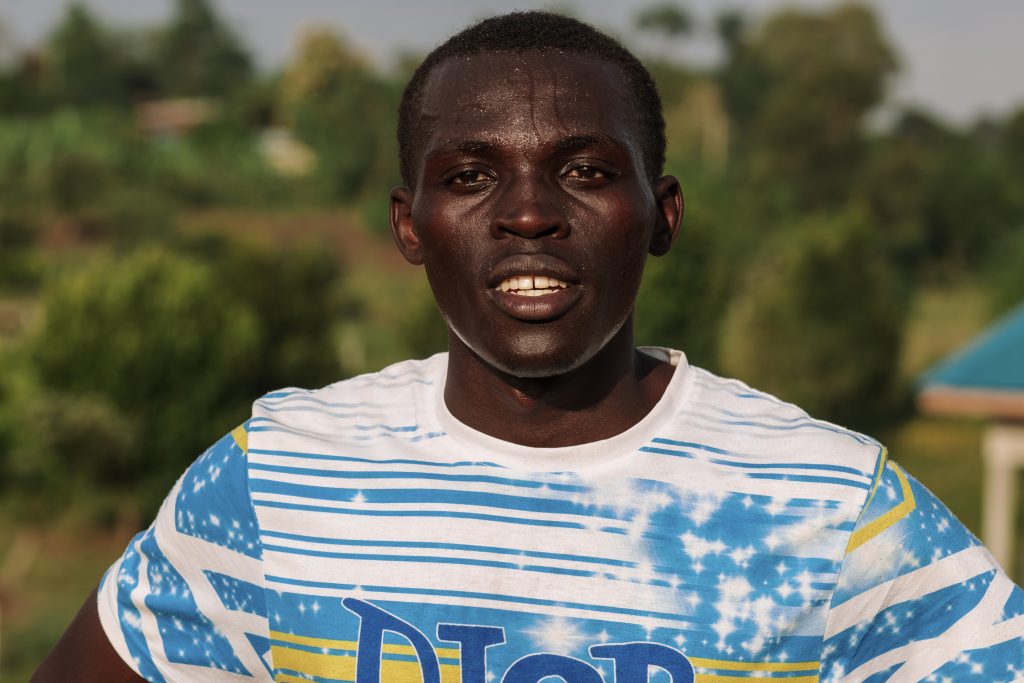
Receiving a name, finding a home
One of the greatest honors of my life came when I was given an Empaako name: Akiiki, meaning “one who upholds national, community, and family interests with great love, care, kindness, and honesty.”
Empaako names are special “pet names” used among certain Ugandan communities like the Banyoro, Batooro, and Bafumbira peoples. They’re terms of affection and unity, carrying blessings of respect and connection. Not everyone receives one. When I did, it felt like more than a welcome into a place. It was a welcome into a shared humanity.
That moment changed how I understood what I was doing there. I wasn’t an outsider documenting poverty. I was family, trusted with stories that deserved to be shared with reverence and love.
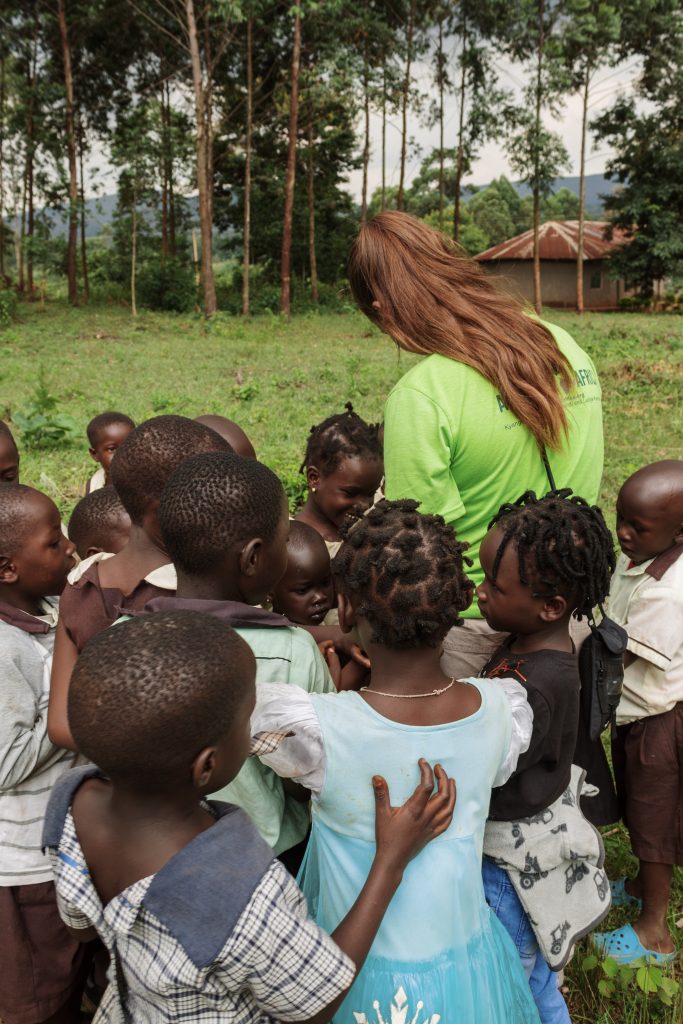
What my daughter taught me
Watching Lena connect instantly with the children of Saviour Junior School taught me something profound. She didn’t see barriers. She didn’t see “other.” She saw kids who wanted to play, laugh, and hold hands while walking down red dirt roads.
After an afternoon of agricultural training at Agri Planet Africa’s headquarters, we returned to find Lena surrounded by students who had raced back ahead of us, eager and full of laughter, gathering around her as if to hold onto the spirit of connection she had sparked in them.
Two years later, now 18, Lena reflects: “I was nervous at first, but everyone made us feel like family from day one. The little kids would grab my hand and show me everything, and the adults taught me farming techniques. Meeting baby Janelle, named after my mom, showed how deep these connections go. I came thinking I might help, but they taught me far more about community and what really matters.”
The stories that demanded to be told
Joshua’s story: When war swept through his village in eastern Congo, Joshua was just eleven. He returned home from school to find his parents gone, his house empty, his world changed. For an entire year, he and his younger siblings survived alone, sleeping in abandoned buildings and living for a week on nothing but chewed sorghum and water. “We became the Legends of the Streets,” he writes. But he never stopped going to school, even repeating Primary 6 four times before CIYOTA found him and helped him begin again.
Alice’s story: Uwamahoro Alice stood with quiet determination at Kyangwali Refugee Settlement, her journey marked by courage far beyond her years. In a community where girl child education was seen as wasteful and marriage expected, she chose a different path. To pay her own school fees, she began hairdressing as a child. Even when pressured to marry to help cover her father’s medical bills, she held onto her dreams. Now pursuing computer science, she’s determined to become a voice for girls and refugees.
Director Robert’s story: At Saviour Junior School, Director Wamani Robert leans into the circle of students he serves with unwavering hope. Despite struggles to pay staff, buy basic materials, and protect lessons from leaking roofs, his spirit remains unbroken. His vision is clear: to build a true center of excellence in Masindi where young minds are empowered to dream beyond their circumstances.
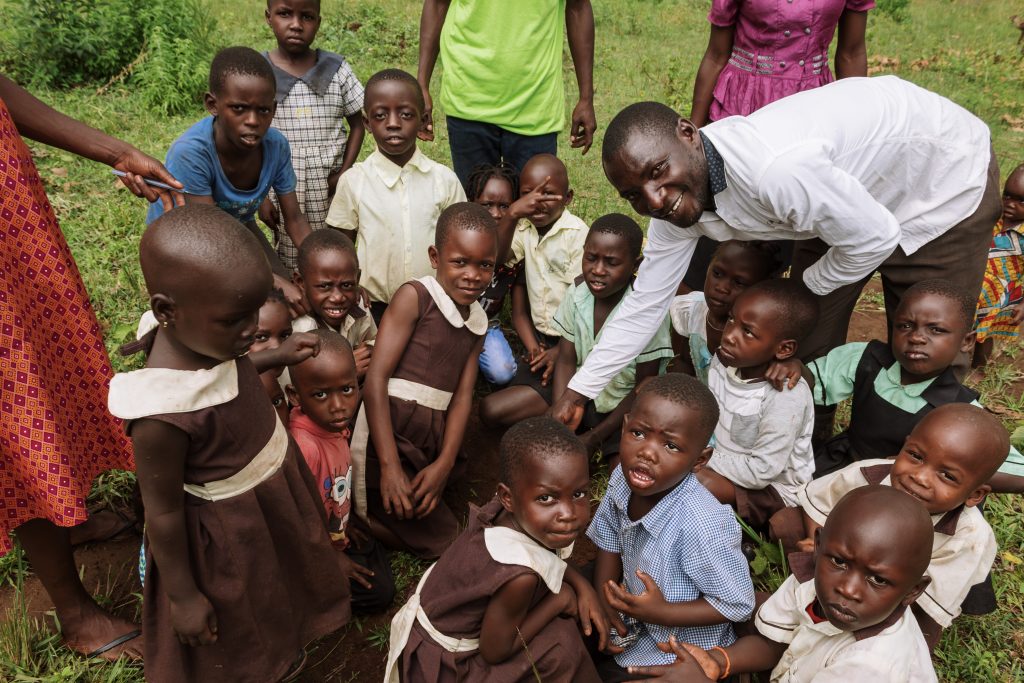
The quiet revolution of sustainable agriculture
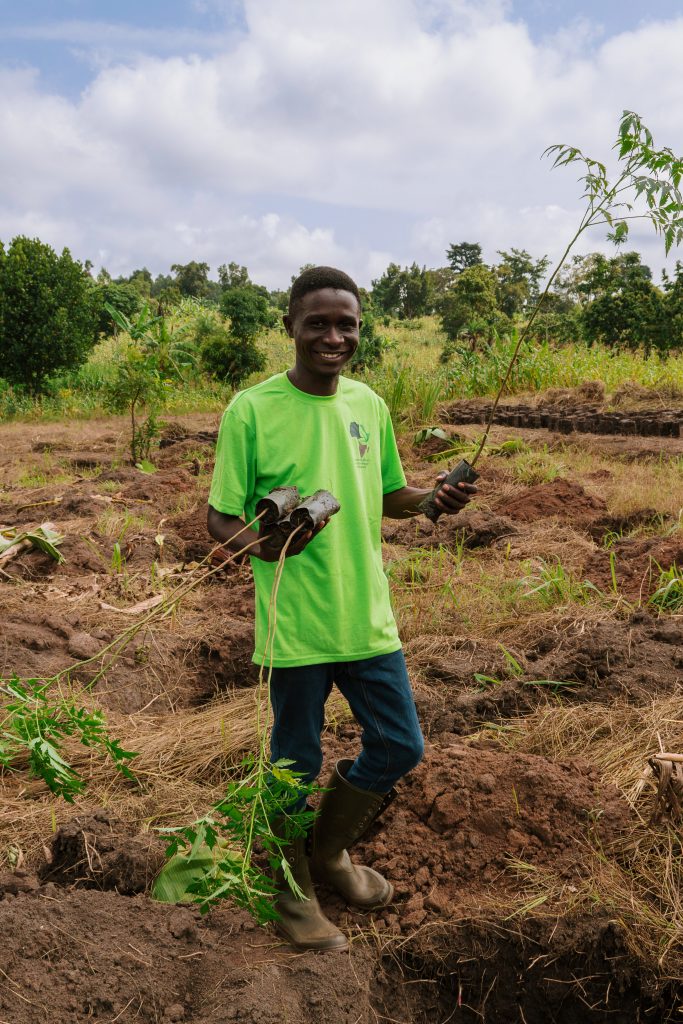
Through my work with Agri Planet Africa, I watched founders Ahumuza Ignatius and Ahaisibwe Cleofash transform a vision of sustainable agriculture into a movement. Their Community Permaculture Resource Centers aren’t just teaching farming techniques. They’re creating pathways to self-sufficiency, dignity, and hope.
I stood in fields where 294 trees were planted in a single day by community volunteers. I watched as Cleofash patiently measured the distance between seedlings, teaching not just children but their teachers how to ensure healthy plant growth for years to come. I saw rainwater collection systems transform seasonal rains into year-round resources. I witnessed plastic bottles repurposed into drip irrigation, turning what others see as waste into tools for survival.
This is systems thinking in action. Agri Planet Africa doesn’t just address hunger. They address the interconnected needs of education, food security, leadership development, and environmental stewardship. When their mushroom cultivation project faced supply chain breakdowns during COVID-19, they didn’t abandon the effort. They helped an orphanage transition from dependency to sustainability by pivoting to maize cultivation and engaging children in hands-on agricultural learning.
What resilience really means
Before Uganda, I thought resilience was about bouncing back from hardship. Now I know it’s something deeper.
Resilience is the farmer who plants seeds even when the rains are uncertain. It’s the teacher who shows up every day to a school with leaking roofs and insufficient supplies because she believes in her students’ futures. It’s the refugee youth who dreams of becoming a software engineer after surviving years on the streets. It’s the mother who walks miles to fetch water, knowing her children depend on her strength.
Resilience isn’t built in isolation. It’s nurtured across generations, passed from heart to heart like a living flame of hope.
Why I wrote this book
Fields of Resilience is my tribute to the extraordinary spirit of Uganda and to the unbreakable threads of humanity that bind us all. It’s proof that love grows fastest where it is freely given, and that hope is most powerful when shared.
But this book serves a purpose beyond storytelling.
80% of proceeds support Agri Planet Africa through Agri Planet Foundation, Inc., a 501(c)(3) nonprofit that facilitates donations from the U.S. to fund the sustainable agriculture education and community resilience programs you’ll witness in these pages.
When you purchase Fields of Resilience, you’re not just reading about change. You’re funding it. Your support helps provide:
- Seeds for farmers and protection from seed fraud through community seed banks
- Training for refugee youth and orphaned children
- Resources for schools serving the most vulnerable
- Community Permaculture Resource Centers that teach sustainable practices
- Fair-trade markets where farmers receive just compensation
- Youth leadership programs that develop the next generation of changemakers
An invitation to walk this path with me
If you care about where your food comes from, if you’re inspired by stories of human perseverance, or if you want to understand what’s possible when we invest in people rather than just programs, I invite you to read Fields of Resilience.
Walk through refugee settlements where hope survives against the odds. Sit beneath banana trees with local councilmen. Learn traditional farming methods from women who carry the future on their shoulders. Feel the fierce tenderness of communities who refuse to give up on each other.
This book will change you the way Uganda changed me. And through your purchase, you’ll change lives in return.
Available now on Amazon and at this website.
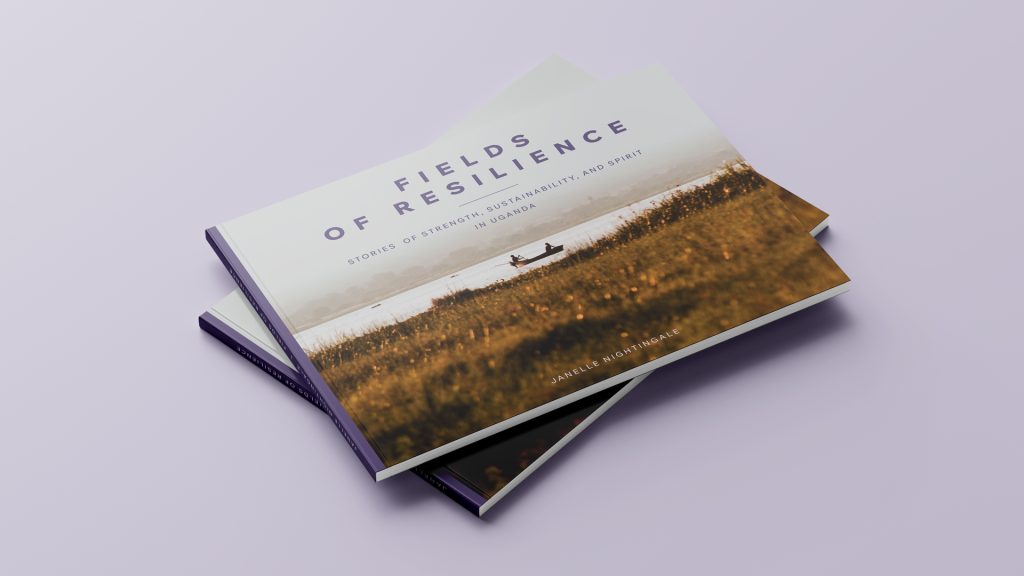

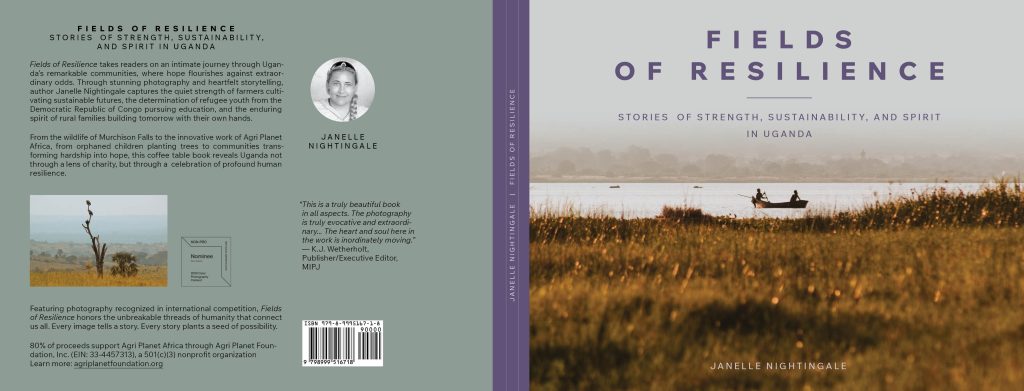
The trees we planted will outlive us all. The children we met will become leaders. The farmers will feed their families for generations. This is how change happens…not through grand gestures, but through the quiet revolutionaries who tend their communities with unwavering devotion.
May you leave these pages carrying new seeds of compassion, ready to plant them wherever you go.
With gratitude,
Janelle Nightingale (Akiiki)
Learn more about Agri Planet Foundation at agriplanetfoundation.org

